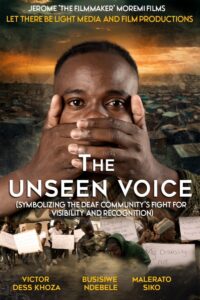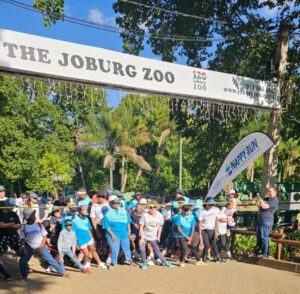
Chris Dodd encourages implementing inclusion as strategy, not a tick box exercise
By Christopher Dodd, iStore CEO
South Africa is home to more than five million persons with disabilities, or 15% of the population. Yet a significant 86.7% of this group is unemployed, according to the IRAS Disabled Persons Rate report.
People often consider disability inclusion to be a charitable pursuit, but it’s much more than that. It’s a path to operational excellence, cultural enrichment, and long-term economic performance. Inclusion works—and we have the lived experience and benefits to prove it. The Apple products we work on every day prioritise accessibility, and we strive to extend this commitment across other aspects of our business.
Inclusion as Strategy, Not a Tick Box
The business case for disability inclusion is well-established globally. Accenture’s landmark “Getting to Equal” report found that companies leading in disability inclusion outperformed their peers with 28% higher revenue, 30% stronger profit margins, and double the net income. And it’s not just financial results that improve.
Studies published in the Harvard Business Review show that including persons with disabilities can sharpen a company’s competitive edge in multiple ways. Firstly, many persons with disabilities bring unique problem-solving skills and heightened capabilities in specific tasks—skills shaped by navigating a world not built for them. Secondly, their presence has a positive ripple effect on team culture, boosting empathy, collaboration, and productivity. Thirdly, companies known for their inclusivity build stronger relationships with customers, who increasingly want to support businesses that reflect their values. And finally, inclusive companies attract better talent and capital by strengthening their reputational currency.
In Europe, a study published in the European Management Journal reinforced these findings, quantifying the positive influence of disability inclusion on both financial performance and corporate reputation. This was echoed in a 2020 report by the International Labour Organisation, which highlighted that inclusive companies also enjoy improved morale, better team cohesion, and lower staff turnover.
Disability Inclusion is not a one-off project. Since 2022, we’ve begun taking steps to build a more inclusive work environment. This has seen our warehouse operations welcoming a small team of Deaf employees into the workforce. To support their integration, we collaborated with Deaf organisations and utilised South African Sign Language (SASL) interpreters during interviews and onboarding. All hearing staff were offered an eight-week training program in Deaf culture and SASL awareness to help foster stronger communication and collaboration.
We also assessed and adapted elements of our workplace, from installing visual signals on forklifts to introducing a buddy system for emergency procedures. SASL interpreters are present at formal staff events, and we’ve made efforts to build accessible communication channels and mentorship support.
This hasn’t been a flawless or finished process. There’s still much to learn and much further to go. However, what we’ve seen already is that meaningful inclusion—when done thoughtfully—can benefit the entire team and organisation, not just those directly affected. As one of our colleagues put it, “Inclusion happened in and out of the workplace.” That sense of shared learning and connection has been a powerful outcome in its own right.
Our warehouse example is a small step, but we hope it can encourage broader reflection. Disability inclusion doesn’t require a radical overhaul. It starts with intention, partnership, and incremental change.
We are also proud to support iSchoolAfrica—a long-standing partner in advancing inclusive education and digital skills development. One of their most impactful initiatives is the iSchoolAfrica Deaf Developers Programme, which equips Deaf youth with coding and app development skills. Launched in 2022, this programme empowers learners from Deaf schools with the digital tools, mentorship, and training needed to enter the tech workforce. Currently, seven out of eight members of its first cohort are employed, with three of them teaching other deaf children in special needs schools to code through iSchoolAfrica’s School Coding Program.
We have learnt that Disability Inclusion is not a once-off project. It’s a commitment that must be embedded into culture, systems, and leadership.






